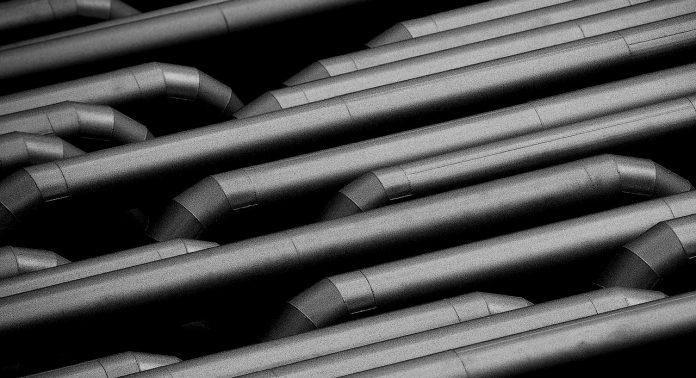Conduits are used for a wide variety of reasons, and they’re very common in the power and telecommunications utilities markets. While PVC (or more specifically, PVC-coated steel) conduits are frequently used, more and more companies have realized the advantages of choosing a fiberglass conduit manufacturer for their conduit needs.
Fiberglass conduits are simply better than PVC for the following reasons:
1. It takes less time to install. A PVC-coated pipe has to be bent to design specs, so it needs special tools to install and these tools aren’t easily available for field contractors. With fiberglass, installation can be accomplished with a common PVC “hot box” that most contractors already have in the field.
PVC-coated pipes are also 4 times heavier than their fiberglass. This makes installing PVC pipes slower as it takes more people to carry, and it’s also inherently more dangerous.
2. Installing fiberglass conduits is less expensive. This is because it’s easier and faster to install, so the resulting labor expenses are much lower. A fiberglass conduit that costs less than $9 in labor rates to install can cost up to $45 in labor expenses for PVC pipes.
3. Fiberglass is comparatively lightweight. Not only does this offer benefits for installation speed, but it also means it places less of a burden for its supporting structures. This makes a fiberglass conduit system easier and cheaper to install, more efficient, and more flexible.
4. Fiberglass has better coefficient of friction. Often, cables have to be pulled through the conduits. This can result in heating and “burn-through,” when the friction can damage the structural integrity of the conduit. While both fiberglass and PVC-coated rigid steel can resist burn through well enough, fiberglass is better than the PVC. This means that with a fiberglass conduit, the cables can be pulled more quickly and more smoothly. The fiberglass is also less vulnerable to damage from the common lubricants used to counter burn-through.
5. Fiberglass is resistant to corrosion in the widest range of environments. Fiberglass is more resistant to corrosion when exposed to hundreds of chemical types and operating temperatures. It is only in a handful of environments (such as exposure to large amounts of ammonia) where PVC-coated pipes are more corrosion-resistant.
6. Fiberglass is more impact-resistant. It can retain its shape after compression or impact, as it is strong and flexible. This makes it better for extreme environments, such as earthquake-prone areas. PVC is much more vulnerable in this regard.
7. The material is easily customized. Fiberglass conduits are actually made from an epoxy resin that’s been reinforced with fibers. This epoxy resin can be tweaked and customized to maximize certain attributes. It can be made to be more corrosion-resistant, or the fiberglass conduit can be shielded from radio frequency and electromagnetic interference.
8. Fiberglass does not release dangerous toxins. If an accident happens, a fiberglass conduit does not release halogens so the immediate area, meaning it’s free from toxicity. But with PVC that burns, chlorine can be released which can affect the respiratory and central nervous system. It also releases bromine, which is also used as a pesticide.
9. Fiberglass has better vibration resistance. Large bridges are commonly subjected to continuous vibrations, which can affect the lifespan of the structure. Fiberglass conduits are often chosen for bridge applications because of its vibration-resistance (along with the other advantages of fiberglass conduits.
10. Fiberglass is electrically safer. It doesn’t conduct electricity, and instead it’s actually an insulator. Jobsites see about 300,000 electrical shocks each year, and more than 500 contractors die every year due to preventable electrical shocks. These deaths, injuries, and resulting litigation can be reduced with fiberglass conduits.
These are just 10 of the many reasons why fiberglass conduits are superior to PVC or PVC-coated pipes. It’s cheaper, stronger, safer, and generally much better.
Find a Home-Based Business to Start-Up >>> Hundreds of Business Listings.

















































